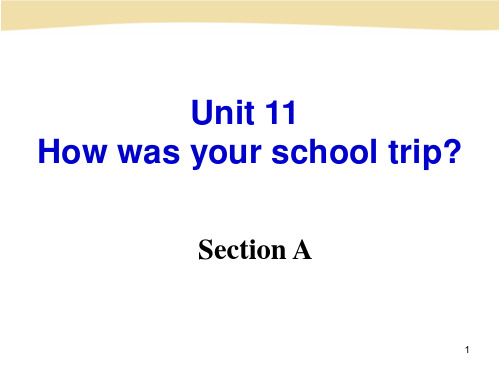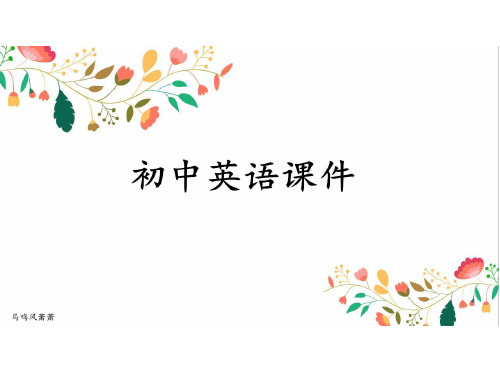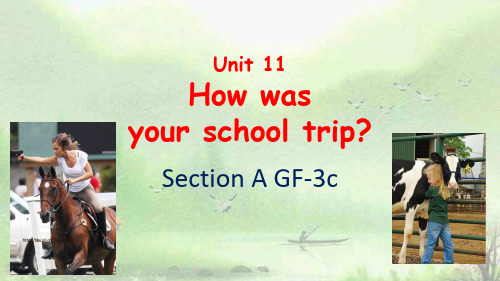with her cell phone.
28
3. It was so much fun.
fun表示“有趣的事情”,为不可数名词。 e.g. Look, Peter. The children are having
so much fun. 4. Lucky you! 你真幸运! 这是一句非正式口语,相当于You’re so lucky. Lucky之后的人称还可以改为me, him。
8
Did he ride a horse? No, he didn’t. Did he feed chickens? Yes, he did. He fed chickens.
Did he go to the zoo? No, he didn’t. He went to a farm. Did he see any cows? Yes, he did. He saw quite a lot.
音后面
/d/
moved /mu:vd/
在清辅音后面 /t/
passed /pa:st/
在t, d 后面 / it / needed /'ni:did/ /id/
清念 /t/, 元浊/d/; /t/ /d/ 之后念/id1/6
一般过去时
知识结构
构成 一般过去时 用法
常用时间
动词的过去式
1. 表示过去某个时间发 生的动作或存在的状态。 2. 表示过去经常或 反复发生的动作。
did his homework took some photos
played football. picked strawberries
rode a horse. watched TV.
talked with a farmer fed chickens





